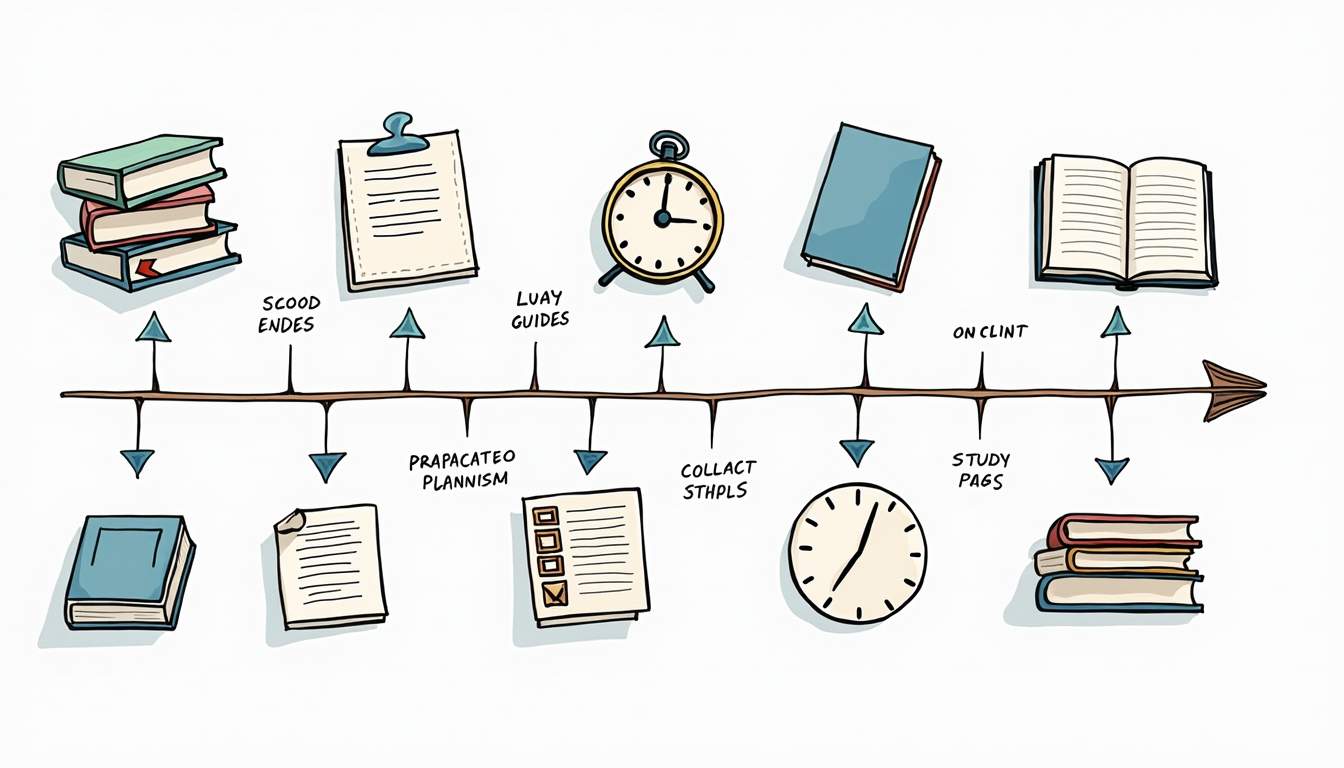The Gujarat Public Service Commission (GPSC) plays a pivotal role in recruiting candidates for various administrative positions within the state of Gujarat. Among these positions, the role of a collector is one of the most prestigious and sought-after. This article aims to provide a comprehensive guide on how one can become a collector through GPSC, detailing the necessary steps, qualifications, and preparation strategies.
Understanding the Role of a Collector
Before diving into the process of becoming a collector through GPSC, it is essential to understand what the role entails. A collector, also known as a district magistrate, is responsible for the administration of a district, overseeing various government functions, and ensuring law and order. This position is often seen as a crucial link between the government and the citizens, acting as a bridge that facilitates communication and the implementation of policies that directly impact the lives of the people.

Key Responsibilities
The responsibilities of a collector are vast and varied. They include:
- Implementing government policies and programs at the district level.
- Maintaining law and order, including overseeing police and revenue administration.
- Coordinating disaster management efforts and relief operations.
- Managing land revenue and the collection of taxes.
Given these responsibilities, the role requires a strong understanding of governance, law, and public administration. Additionally, collectors often play a pivotal role in community engagement, working closely with local leaders and organizations to identify the needs of the populace. They may conduct regular meetings with stakeholders to discuss pressing issues, ensuring that the voices of citizens are heard and considered in the decision-making process.
Required Skills
To excel as a collector, certain skills are indispensable:
- Leadership and decision-making capabilities.
- Excellent communication and interpersonal skills.
- Analytical thinking and problem-solving abilities.
- Knowledge of local laws and regulations.
These skills not only help in effective administration but also in building a rapport with the community. Furthermore, adaptability is crucial, as collectors often face unexpected challenges such as natural disasters or social unrest. The ability to remain calm under pressure and to think on one’s feet can significantly influence the outcome of critical situations. Collectors must also be proficient in utilizing technology for data management and communication, which has become increasingly important in modern governance.
Eligibility Criteria for GPSC Collector Examination
To become a collector through GPSC, candidates must meet specific eligibility criteria. Understanding these requirements is crucial for anyone aspiring to take the examination.
Educational Qualifications
The minimum educational qualification required to apply for the GPSC collector examination is a bachelor’s degree from a recognized university. While any discipline is acceptable, degrees in public administration, law, or social sciences can provide an added advantage. Candidates with advanced degrees, such as a master’s or a doctorate, may find themselves better positioned in terms of knowledge and analytical skills, which are vital for the responsibilities of a collector. Furthermore, relevant internships or experience in governmental or non-governmental organizations can enhance a candidate’s profile, showcasing their commitment to public service and governance.
Age Limit
The age limit for candidates varies based on the category:
- General category: 20 to 35 years
- OBC category: 20 to 38 years
- SC/ST category: 20 to 40 years
It is essential to check the official GPSC notification for any updates or changes to the age criteria. Additionally, candidates should be aware that there may be provisions for age relaxation for certain groups, such as ex-servicemen or persons with disabilities, which can further influence their eligibility. Understanding these nuances can help candidates better prepare and strategize their application process.
Nationality
Only Indian citizens are eligible to apply for the collector position through the GPSC. Additionally, candidates must be residents of Gujarat or have a valid domicile certificate. This requirement ensures that the candidates have a deep understanding of the local culture, issues, and governance challenges faced by the state. Furthermore, being a resident allows candidates to be more attuned to the needs and aspirations of the community they will serve, making them more effective in their roles as collectors. Candidates are encouraged to familiarize themselves with the socio-economic landscape of Gujarat, as this knowledge will be beneficial not only during the examination but also in their future responsibilities.
The GPSC Collector Examination Process
The examination process for becoming a collector through GPSC is rigorous and consists of multiple stages. Each stage is designed to assess the candidate’s knowledge, skills, and suitability for the role.
Preliminary Examination
The first step in the examination process is the preliminary examination. This is a screening test that consists of multiple-choice questions covering various subjects such as:
- General Studies
- Current Affairs
- Indian History and Geography
- Public Administration
Scoring well in this stage is crucial, as only those who qualify will move on to the next phase. Candidates often spend months preparing for this examination, utilizing a variety of resources, including textbooks, online courses, and mock tests. The preliminary examination not only tests factual knowledge but also assesses the candidate’s analytical abilities and decision-making skills, which are essential for a collector’s role in managing administrative tasks effectively.
Main Examination
Once candidates clear the preliminary examination, they must appear for the main examination. This stage is more comprehensive and consists of descriptive-type questions. Subjects typically include:
- General Studies I, II, and III
- Optional Subject (chosen by the candidate)
Preparation for the main examination requires a deeper understanding of the subjects, as well as the ability to articulate thoughts clearly and concisely. Candidates are encouraged to engage in extensive reading and writing practice, as well as to participate in group discussions to refine their perspectives on various issues. This stage also emphasizes the importance of time management, as candidates must complete their answers within a limited time frame while maintaining clarity and coherence in their writing.
Interview Stage
The final stage of the selection process is the personal interview. This stage assesses the candidate’s personality, communication skills, and suitability for the role of a collector. Interviewers often look for candidates who exhibit confidence, clarity of thought, and a strong understanding of administrative functions. Additionally, candidates may be asked situational questions that require them to demonstrate their problem-solving abilities and ethical reasoning. It is not uncommon for interviewers to delve into a candidate’s past experiences, exploring how they have handled challenges or conflicts in previous roles, thereby providing insight into their potential as a future collector.
Preparation Strategies for GPSC Collector Exam
Preparing for the GPSC collector examination requires a well-structured plan and dedication. Here are some effective strategies to enhance preparation.

Understanding the Syllabus
Familiarity with the syllabus is fundamental. Candidates should thoroughly review the syllabus for both the preliminary and main examinations. This will help in identifying key topics and allocating time effectively for each subject.
Study Materials
Selecting the right study materials is crucial. Candidates should consider using:
- Standard textbooks for each subject.
- Current affairs magazines and newspapers.
- Online resources and mock tests.
Utilizing a mix of these resources can provide a comprehensive understanding of the subjects and improve exam readiness.
Mock Tests and Previous Year Papers
Practicing with mock tests and previous year question papers is an excellent way to gauge preparation levels. These practices help in:
- Understanding the exam pattern.
- Identifying strengths and weaknesses.
- Improving time management skills.
Regularly taking mock tests can significantly enhance confidence and performance on the actual exam day.
Post-Examination Process
After successfully clearing the examination and interview stages, candidates must undergo a few more steps before officially becoming a collector.

Document Verification
Once the results are declared, candidates will be called for document verification. It is essential to have all necessary documents ready, including:
- Educational certificates
- Domicile certificate
- Identity proof
Failure to present the required documents can lead to disqualification.
Training Period
After document verification, selected candidates will undergo a training period. This training is crucial for understanding the practical aspects of the role, including administrative procedures, law enforcement, and public service duties.
Appointment as Collector
Upon successful completion of the training, candidates are officially appointed as collectors. This marks the beginning of a challenging yet rewarding career in public service.
Challenges Faced by Collectors
While the role of a collector is prestigious, it is not without its challenges. Understanding these challenges can prepare aspiring candidates for the realities of the job.
Administrative Pressure
Collectors often face immense pressure to deliver results, manage resources efficiently, and ensure the implementation of government policies. This pressure can be overwhelming, especially during crises such as natural disasters or public unrest.
Public Scrutiny
Being in a public-facing role, collectors are subject to scrutiny from the media and the public. Handling criticism and maintaining a positive public image can be challenging, requiring strong communication and public relations skills.
Work-Life Balance
The demanding nature of the job can sometimes lead to difficulties in maintaining a work-life balance. Collectors often work long hours and may be required to be on call during emergencies, which can affect personal life and relationships.
Conclusion
Becoming a collector through the GPSC is a prestigious and fulfilling career choice for those interested in public service and administration. With the right preparation, dedication, and understanding of the responsibilities involved, aspiring candidates can navigate the process successfully. While challenges are inherent in the role, the opportunity to make a significant impact on society makes it a rewarding profession.
For those considering this path, it is advisable to stay updated with GPSC notifications and continuously enhance skills and knowledge relevant to the role. The journey may be demanding, but the rewards of serving the community and contributing to the state’s development are invaluable.
Take the Next Step with GPSC OJAS
Ready to embark on your journey to becoming a collector in Gujarat? GPSC OJAS is here to support you every step of the way. As your premier source for the latest on Gujarat Government jobs and exam notifications, we ensure you have access to the most current information and online application processes. Don’t let any opportunities slip through your fingers. Explore Now and stay informed with GPSC OJAS, your partner in navigating the path to a rewarding career in public service.